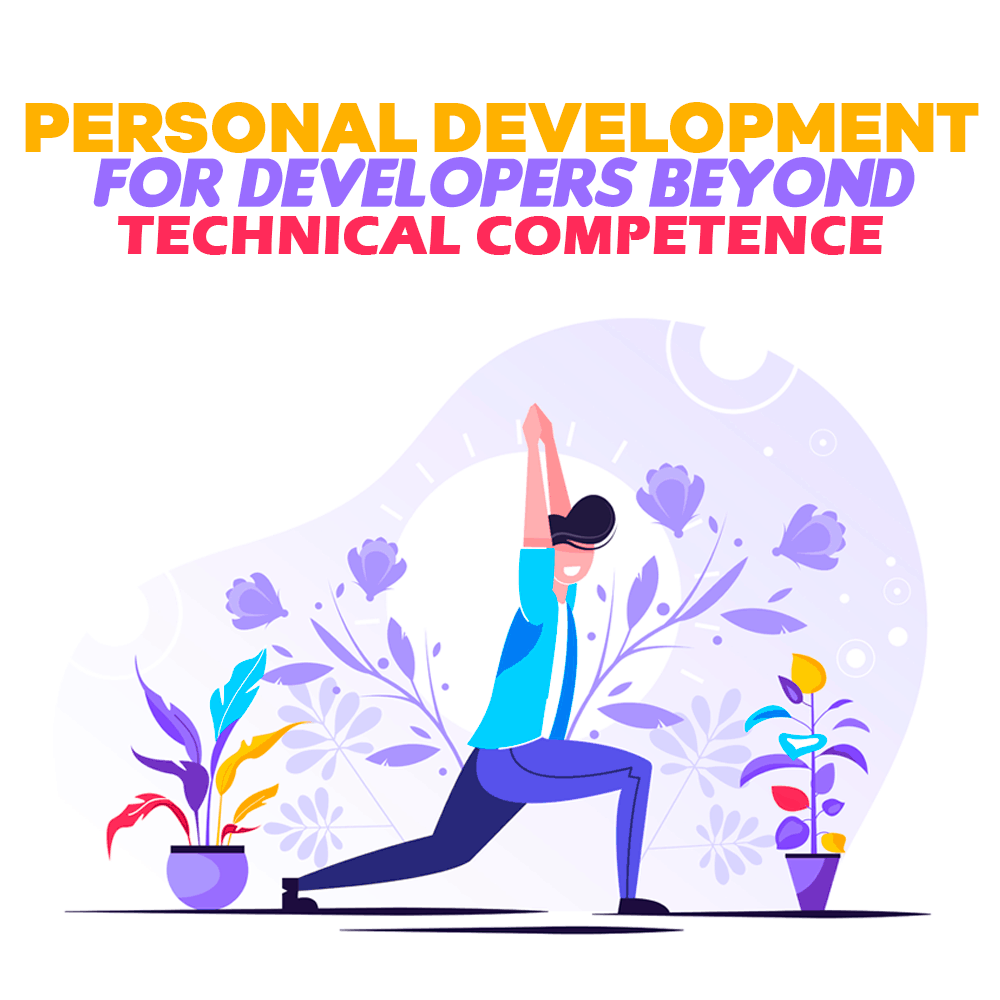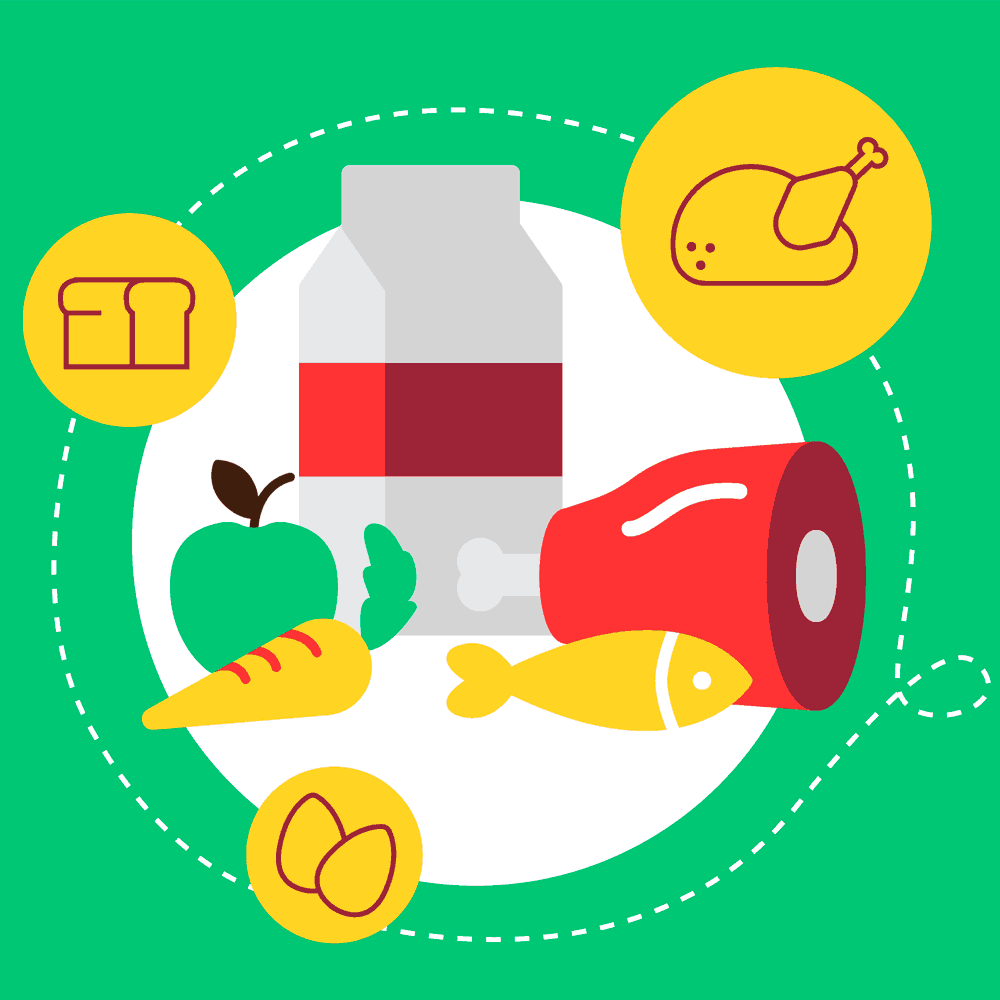 Software developers, as a professional class, are particularly dependent on their overall condition to perform well at their jobs. As the job is particularly intellectually demanding, setting up a healthy lifestyle that complements the work is more than necessary.
Software developers, as a professional class, are particularly dependent on their overall condition to perform well at their jobs. As the job is particularly intellectually demanding, setting up a healthy lifestyle that complements the work is more than necessary.
What I’ve learned working for an outsourcing company developing healthcare apps is that a programmer clearly needs to polish their technical skill set. However, going beyond the specifics of the job, building a skill set and lifestyle that help you as a well-rounded individual is invaluable in a professional environment. Not only do you start building a practice that is sustainable over time, but you also reduce the risks of amortization, and create a healthier and more successful you.
Healthy Body, Healthy Mind
Every craftsman keeps their tools well-polished and taken care of. This ensures they are available for use and in peak condition at all times. For a developer, these tools include their body and their mind. It’s important for a developer to keep both of these in as healthy a condition as possible, as it is imperative to the quality of the work that is submitted.
There are certain things that most people seem to agree are important: healthy nutrition, regular exercise, and enough sleep. While those are the obvious pillars of health, there are heated discussions regarding the right method to reach each of those goals.
For the busy developer, finding sustainable methods over time is the best approach. Here are some tips for a healthy balance I learned from my experience as a student and a full-time employee.
Exercise at Least a Few Times per Week
Being meticulous for a month or two, then falling off the wagon when you become overwhelmed and too tired to maintain your new and extreme habits has proven to be a very unproductive approach. Rather than throwing ourselves fully into a lifestyle we are not used to or truly prepared for, it’s best to start off slowly, committing to exercising only one or two days per week, then slowly raising that if the chance arises.
I currently try to maintain physical activities three times per week. If I attempt any more than that, I find it is not sustainable for me and I cannot keep up. Less than that and the activity isn’t enough to boost my energy or help me maintain my muscle tone.
Of course, what type of exercise, when it’s done, how often it’s done, and where depends on your personal preferences. The most important thing is to get started. Show up and do what you promised yourself you would. Eventually, this habit will start to feel so natural, you won’t want to go through life without it!
Cut Down Sugar to a Minimum
The issue with sugar is widely broadcasted as a diabetes-inducing habit. However, the real issue with using sugar that is noticed daily is the fact that it creates inconsistencies in one’s insulin levels. This results directly in inconsistent energy spikes and slumps.
The amount of sugar you consume is directly tied to your daily energy levels, so cutting it down to a minimum promises a much more consistent state of productivity.
As someone with a massive sweet tooth, myself, I have a very hard time cutting it off completely. But I do try to limit it to only the teaspoon of honey I put in my breakfast oats or tea.
Even with the burst of energy you may feel when you eat sweets, it’s not enough to sustain you throughout the entire day. Eventually, it goes away, leaving you more tired and less motivated than before. Limiting your sugar intake means you never have to experience this afternoon tiredness and utter lack of energy again. Your energy becomes much more reliable and predictable, helping you plan your work ahead of time.
This is especially beneficial to those whose performance is mainly intellectual—such as developers. While your body can perform physical activities on autopilot, being creative and innovative in your problem-solving demands full brainpower.
Align Your Schedule to Allow for Seven to Eight Hours of Sleep Daily
Sleep is an absolute must. If I do not get enough sleep daily, I see my performance drop significantly. Depending on how flexible your work schedule and other responsibilities are, it may be easy or hard to account for getting enough sleep.
To get the much-needed rest, I have two main suggestions:
- Go to bed early enough to have eight and a half hours to your wake-up time. If you aren’t used to getting in bed early and have a hard time falling asleep, I recommend sleep meditation videos. Those helped me reduce my stress levels significantly enough to drift off and have enough quality sleep. Over time, it gets easier to fall asleep.
- Keep the temperature in your bedroom chillier than usual. Ideally, the temperature should be around 19 to 21 degrees Celsius (66 to 69 degrees Fahrenheit). It will be much easier to fall asleep with a better quality of sleep, and you won’t toss and turn as much due to feeling too hot and looking for a better position.
Have a Balanced Diet

My advice is simple: Try to balance all the needed groups. Eat veggies, eat meat, eat fats, and eat fruit. The key is moderation and compatibility. As long as you have an overall balanced diet with an emphasis on ingredient quality, you will likely start eating better and feel noticeably better, as well.
Understand Caloric Values
I understand that counting every calorie you eat can be stressful. And in the average lifestyle, it isn’t really all that needed. But with all the processed food with easy access out there, understanding the energy values of different foods can ultimately help you stay at a healthy weight and have a better intuitive measure for the adequate portion size.
I encourage you to measure how much you eat on average per day. Compare that to how much you should be consuming on average and take the time to understand how calorie-dense foods are. This understanding helps you steer clear of nasty eating habits that are much more difficult to overcome once they get rooted.
Meal Preparation
Meal prep is a lifesaver for me. I love food of all kinds. If I am busy at work, it is much less likely I will go out of my way to get a healthy meal for lunch. The quick fix is the vending machine in the office. On the flip side, when I do opt for a balanced meal with meat and veggies, the costs for lunch add up quickly.
Cooking my meals at home is clearly the superior option financially speaking. Plus, having a lunchbox gives me the vending machine level of comfort and easy access, while the food is superior even to the healthy restaurant meals I would buy around work.
It takes a little bit of planning ahead, but I try to do my grocery shopping twice per week along with cooking my meals for three to four days ahead. That means lunch and dinner. I would add a fresh salad in the evenings that I make on the spot—which usually takes no more than 15 minutes.
Social Circle and Work-Life Balance
Work is a vital part of any modern individual’s life. However, there is more to life than work, and to be healthy and grow as a developer, you need to address all your skills. Balance out your time in a way that allows you to grow what is important to you. Maintain your health and body so you can thrive in a professional setting.
What is a change you have been wanting to implement in your life but are having trouble with? What do you believe should be a priority in a developer’s life but is widely neglected?
